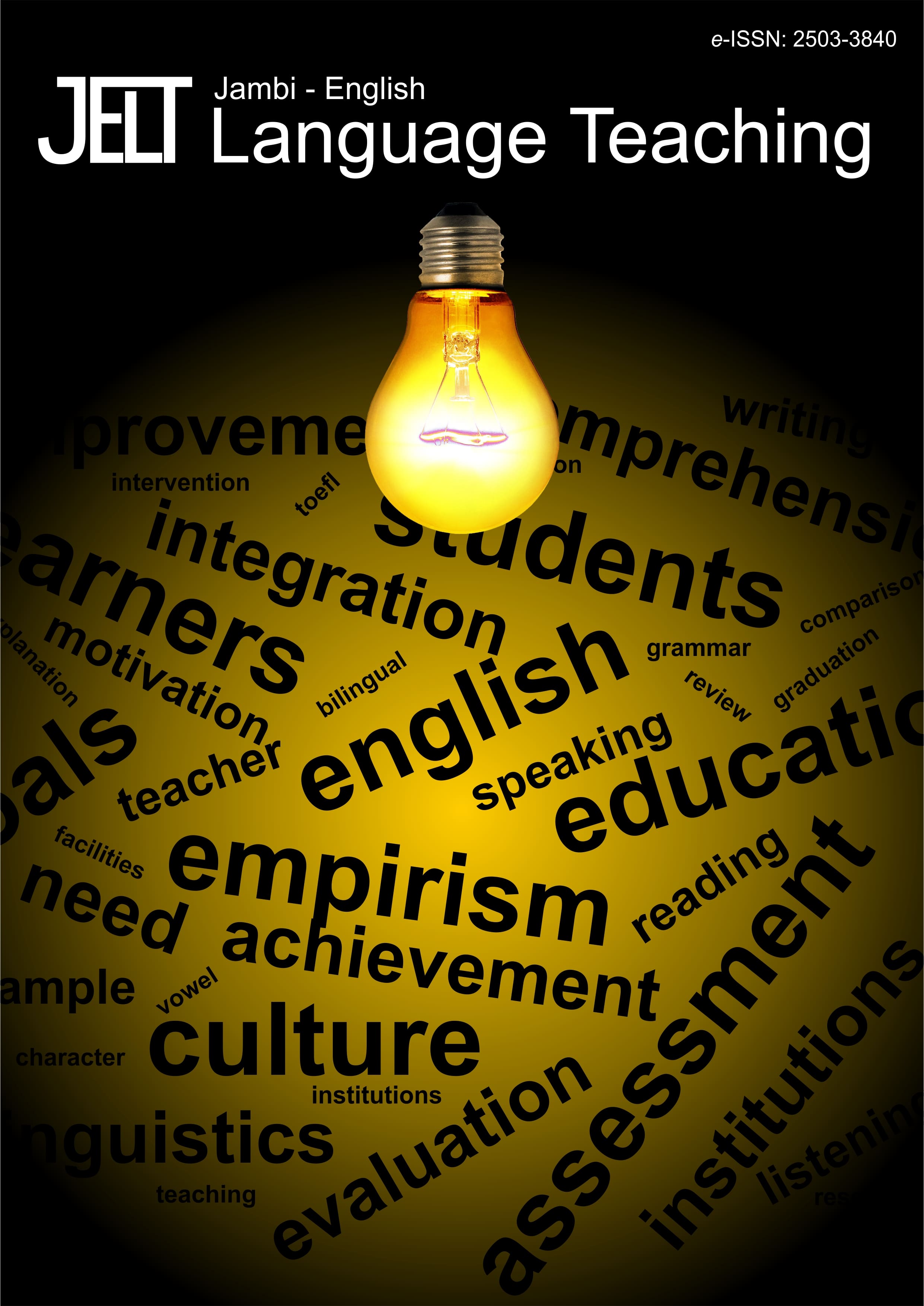METACOGNITIVE STRATEGIES USED BY EFL UNDERGRADUATE STUDENTS IN READING ENGLISH TEXT
Main Article Content
Abstract
This study aims to investigate most of metacognitive strategies used by fifth semester students of English
Education Study Program in academic year 2020/2021 and also investigate their metacognitive awareness.
Eighty-nine students were participated in this study including 27 males and 62 females. The current study
used quantitative approach with survey design in which the author used a questionnaire to evaluate students’
responses. Survey of Reading Strategies (SORS) was used to investigate the reading strategies used by
students while reading English texts. Furthermore, it also used to assess metacognitive reading awareness
of students. The findings reveal that the participants’ overall use of metacognitive reading strategies
(Global, Problem-solving, and Support reading strategies) was at a high to medium level. There are 12
strategies used with high frequency while 18 strategies used with medium frequency and no strategy
reported using low frequency. Among of these three metacognitive categories, problem solving appears to
be the most strategies used by participants and followed by global reading and support reading. The present
study also reveals that they are have high- to low-level awareness of metacognitive strategies. From the
interview, also found that most students rely more on google translate.
Downloads
Article Details

This work is licensed under a Creative Commons Attribution-ShareAlike 4.0 International License.

